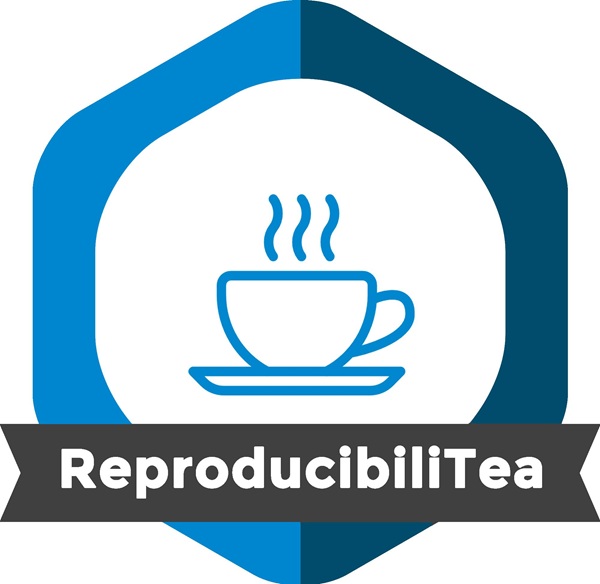Welcome back to ReproducibiliTea for 2025/2026 – our dedicated space to talk about Open Science with insights from invited speakers! For this year we went bold and decided that not one, not two, but three speakers for each session would give you, dear reader, the best overview of each topic. Our slightly longer session of ~1.5 hours hosted online gives us the opportunity to reach more people and gives you the opportunity to really get into the topic and hear different perspectives and experiences, with plenty of time for an engaging Q&A. So, without further ado, keep reading to discover all about our first session of the year!
For the November ReproducibiliTea edition, we had a pleasure to host three excellent speakers: Dr Larissa Peixoto, from the School of Social and Political Science (UoE), Dr Theo Andrew, from Library and University Collections Services (UoE), and, last but not least, Prof Malcolm Macleod, from the School of Neurological and Cardiovascular Sciences (UoE). All of the speakers gave some important insights into their personal journey into Open Research, along with some recommendations and useful resources. We have a recording at the end of this post for you to watch, and in the meantime, here are the main insights and suggestions from each speaker:
Larissa
Larissa is currently a Postdoctoral Research Fellow in Political Science at UoE, but her interest in working reproducibly started quite some time ago when she realized some of the flaws in Brazilian voting system.
Main insight:
“Making Data available with no explanation on how these data were obtained or can be used does not make them open!”
Recommendations:
- If you are doing something repetitively – automate it, so it becomes reproducible and transparent. Do everything that helps you keep organized.
- Decolonize your sources – consider looking into science produced by scientists in a different country next time you are gathering data or checking literature.
Theo
Theo is the Scholarly Communications Manager at the University, who is also an amazing advocate for Open Access and Open Source. Was your thesis deposited onto Edinburgh Research Archive and now is digitally available all over the world? Well, he is one of the main people you should thank for that!
Main insight:
“Open research practices are multiple, and the secret is to start small and to do the ones that make you most excited. These are building block that will sum up long term.”
Recommendations:
- Create a Data Management Plan, use preprints, publish detailed Methods and Protocols – everything is important.
- Populate your research profile, register on ORCID – Openness starts with people.
Malcolm
Malcom is Professor of Neurology and Translational Neuroscience and Co-Director of Edinburgh Neuroscience at UoE. He has also been the Academic lead for Research Improvement and Research Integrity at the University. Still not impressed? Well, he is also the co-founder of CAMARADES – the Collaborative Approach to Meta-analysis and Review of Animal Data from Experimental Studies, a research group aiming to highlight problems with in vivo research and providing evidence for clinical trial design using evidence synthesis. He is the man to talk about open research.
Main insight:
“Research about how research is done is fascinating. The value of information increases when shared and used, and information is not depletable. Progress is made one funeral at a time.”
Recommendations:
- Remember: Open Research is connected to Research Integrity and Research Culture – any actionable suggestion to improve Open Science should be able to improve the overall picture.
- The metrics of Open Research, such as number of open access publications, are important – but remember that it is not just about the metrics!
Additional Sources of Interest for our readers:
- Lens.org – Explore global science and technology knowledge and do some cool data analysis!
- Openjournalscollective.org – a collective of libraries and university-based publishers changing the way that academic research is supported and disseminated.
- Scielo.org – the Latin American Scientific Electronic Library Online project
As a reminder, ReproducibiliTea sessions take place online on the first Wednesday of every other month 10-11:30 AM – join us for the next session on 7th January 2026! On alternating months, we now host Honest Research Conversations (HRCs), EORI’s first ever in-person event – join us at the Edinburgh Future Institute (EFI) next month to have a chat about next month’s topic, “How to work openly”, focusing on different stages of a project’s lifespan.


